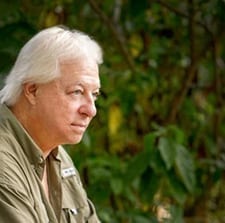We’re Soft & We Can’t Deny It
November 20, 2024By Tom Poland
Mama trembled when she talked about the Great Depression. I never forgot that. She’s gone and only the oldest survivors recall those hard times. Today’s full-plate patrons can’t relate. Hello obesity. With no need to worry about the next meal, some folks fret over what their next tattoo will be. We could use a reset in this country. Something that ushers in hard times. Until that happens, testimony from those who suffered mightily most likely will fall on deaf ears.
Harry Crews’s A Childhood—The Biography of a Place lays out in honest, brutal, and beautiful truth what life was like in the Great Depression in South Georgia. “The night after the day daddy was buried, somebody went in the smokehouse and stole all the meat … Mama knows who got the meat, not because she had any hard proof, but because in her heart she knows, and I know, too, but the one who got it is himself lying in the same graveyard daddy’s in and I see no reason to name him. He was one of my daddy’s friends. I do not say he was “supposedly” or “apparently” a friend. He was a friend, and a close one, but he stole the meat anyway.
“Not many people may be able to understand that or sympathize with it, but I think I do. It was a hard time in that land, and a lot of men did things for which they are ashamed and suffered for the rest of their lives. But they did them because of hunger and sickness and because they could not bear the sorry spectacle of their children dying from lack of a doctor and their wives growing old before they were thirty.”
Closer to home and long ago my aunt set her Depression memories to paper. She and her family made do. They got by. They weren’t soft. They endured. They fished and scavenged. They shared and survived.
“We didn’t eat eggs; we bartered them for things we didn’t have. Mama made her own snuff … she’d dry tobacco leaves and put them in a sack and pound them into a powder and add sugar. We made homemade syrup. The soles of shoes would flap and daddy would wire them together. If others got too close, they’d scratch ’em.
“In spring, daddy would borrow $65 to buy cotton seed and fertilizer. In fall he’d pay back the $65 when the crop came in. What was left was all we had to make it to the next year.”
She remembered meal soup with a hambone. “Each family member could get a bite or two of meat and mama would mix meal and green onions from the garden—one of the best things I’ve ever eaten. Sundays mama would fix something special. Wild grapes grew at an old home place. We’d find muscadines, what we called fox grapes. We’d set out hooks for fish on Saturday nights.
“Everybody had dresses made from bolts of cloth provided by the WPA so everybody looked alike.” She remembers how dresses made from flour sacks had to be washed a lot to get the numbers and printing out.
“I remember daddy making persimmon beer. It had baked sweet potatoes in it and clean broomstraw went in the bottom to strain it. We all got one glass. It was sharp and tickled your tongue. That night a mule wandered through the yard and pulled the stopper out. That was the end of the persimmon beer. Some summer nights, it was so hot we’d sleep on pallets beneath the stars.
“We shared a good garden with those whose garden failed. Daddy would kill a beef every year. He’d put it in a wagon and take it to the neighbors and share it. Neighbors did the same thing. So everyone had some beef that way.”
So, what memories will we leave? Grocery stores full of food. Fitness centers. Air conditioning and heat pumps. Venmo and Zelle. Fast food and fine fashions, backward caps, nose rings, and all. Manicured lawns. Sirloin patties ready to grill. Craft beer and wineries. Microwaves, crockpots, and freezers. Cigarettes, vapes, and gummies too. Let the good times roll.
My aunt slept on pallets beneath the stars, but she wasn’t soft. She was tough and she grew up appreciative of the good things that came her way. I aim to work on being more grateful myself, but all in all—my opinion only—society today isn’t made to survive. The good times will come to a stop.
Georgia native Tom Poland writes a weekly column about the South, its people, traditions, lifestyle, and culture and speaks frequently to groups in the South. Governor Henry McMaster conferred the Order of the Palmetto upon Tom, South Carolina’s highest civilian honor, stating, “His work is exceptional to the state.” Poland’s work appears in books, magazines, journals, and newspapers throughout the South.
Visit Tom’s website at www.tompoland.net
Email him at [email protected]






















